-
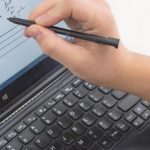
Top 10 Videos for Scales & Key Signatures
The aim of the game here at DSMusic is sequential music literacy and really knowing. This means step-by-step teaching and learning of music aural and music theory concepts, followed by the practicing of these in a variety of ways. Scales and key signatures (tonality) are a vital part of any music literacy approach. They pop […]
-

4 FREE compositional device resources for music performance analysis
Dive into the four compositional devices in the VCE Music Study Design – with tips and listening examples.
-

Top 10 Videos for Chords, Chord Progressions & Cadences
Here at DSMusic, we understand that a lot of what we teach and learn in the music aural and theory space is connected. While this often means we can practice several musical concepts within the same activity, it can also make step one a little daunting. Concept-wise — chords, chord progressions and cadences definitely fit […]
-
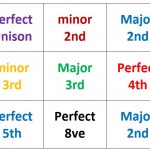
A Few of my Favourite ….. Interval Activities
A Few of my Favourite ….. Interval Activities I was recently struck by how many activities we need to keep our students interested and engaged in our music classes. If we teach something to our 4 year old students (e.g. “beat”) then we need to have sufficient practice activities to challenge our students enough […]
-

Top 10 Videos for Music Theory & Aural Concepts
Here at DSMusic, we’re big on all things music language, and building music literacy using Kodály-inspired strategies. We know that while the fundamentals of what we’re teaching and learning in these spaces hasn’t changed too much, what we’re required to do come exam time often gets tweaked. This is the case for us in Victoria […]
-

3 FREE activities for mapping melodic contours in your music classroom.
Ever wondered why the Star Wars main theme makes you feel ready to run off and join the Rebel Alliance and take on the entire Empire? Sure, that fanfare has some pretty epic blasting brass which has something to do with it, but there’s another reason. The answer? Melodic contour. Not sure what that is? […]
-
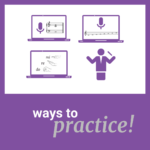
Intervals, semiquavers and practicing how to practice!
Check out some resources and content you might have missed around the DSMusic space recently. Resource Round-Up DSMusic’s top tips for practicing musicianship! Needing to “practice” is quite a catch-cry in the music learning space but sometimes it can be a little harder to model what that might look like for our students, as far […]
-
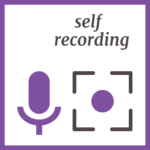
Why you should record yourself during music practice!
As a “performer” – even if you are only singing scales in the shower – you do not hear yourself the way others do. You may be too busy thinking about the Solfa names of the notes you are singing or the rhythm Deb asked you to clap as you sing that melody. Consequently, to […]
-

Ways to Actually PRACTICE your musicianship skills: DSMusic’s Top Tips
Here at DSMusic, we’re big on all things music language, sequential scaffolding and skill strengthening. Cracking into concepts and then taking learning all the way through to knowing. Needing to “practice” is quite a catch-cry in the music learning space but sometimes it can be a little harder to model what that might look like […]
-
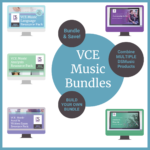
Practice tips, resource bundles & beating exam stress.
Check out some resources and content you might have missed around the DSMusic space recently. Resource Round-Up Get more of what you need from DSMusic for less! Announcing the launch of FIVE brand new BUNDLE options for VCE Music! Bundle together the DSMusic online courses for Analysis & Musicianship to get your interpretation as well […]
-
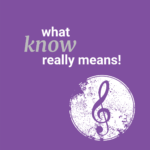
What Know Really Means: Strengthening Your Musicianship Skills
We learn things all the time, but learning is not knowing. Just because you can recall information for a test or parrot something back you’ve been told before, doesn’t mean you actually understand or really know these concepts. In musicianship – being truly musically literate – a key element of really knowing is what’s called […]
-
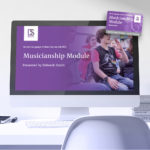
Solfa, sailing & slow, mindful practice
Check out some resources and content you might have missed around the DSMusic space recently. Resource Round-Up It’s never too late to learn Solfa! Are you always stuck finding ways to get your students better at the musicianship stuff? The Music Language Online Course – Musicianship Module offers daily practice activities across a variety of concepts […]
-
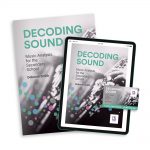
Teaching Music: Tips, Tools & Why We Do It
Check out some resources and content you might have missed around the DSMusic space recently. Resource Round-Up The Importance of Music Education Although all things music literacy and language of music are key here at DSMusic, we’re also big fans of terrific advocacy material. While we as music teachers and students understand the importance of […]
-
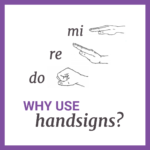
The what, how and why of handsigns
Why use handsigns? Each Solfa note (do, re, mi etc.) has a certain shape you make with your hand whenever you sing it – a handsign. As you sing the notes, you also move your hand up and down in a way that matches how the pitches are moving. It’s this approach that means you […]
-

How Eilish & Holst can help you Decode Sound!
Check out some resources and content you might have missed around the DSMusic space recently. Resource Round-Up Build Better Performers! DSMusic has everything you need to digitally decode character, comparison, tempo, articulation, tone colour and more! Decoding Sound: Analysis for the Secondary School is a fully interactive way for students to build word lists and […]
-
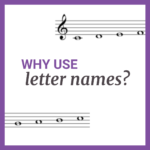
Let’s learn about letter names!
Music language is the method of human communication, either sung, played or written, consisting of the use of notes, in a structured and conventional way. If we’re thinking in terms of language, In music, letter notation can be a system used to represent pitches. In conventional Western note-naming, these are the letters A-G. These letter […]
-

Why music literacy is as easy as do – re – mi!
What is Tonic Solfa? Tonic Solfa or Moveable do Solfa is a system of note naming in which every note within a scale is given a name based on its relationship to the other notes within that key. This is called tonic, functional or moveable do solfa as each name represents the function of that particular note (for example the […]
-
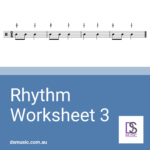
Canons, Creativity & Communities
Check out a few DSMusic free resources and a discover a round-up of our favourite finds this month.
-
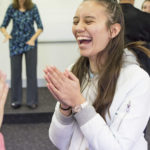
Memorisation & Music Learning
An important aspect of any musicianship, music literacy or music aural and music theory work we do is memorisation. This is where you memorise a specific concept or element (e.g. scales or chords etc.) or activity (e.g. a melody or rhythm etc). The obvious reason for doing this is so that the information is there, in your […]
-
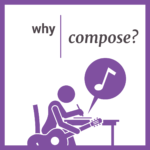
Why you should compose when practicing music literacy skills
Composition, just like performance, is a beneficial way to apply your music aural and music theory skills – what we call musicianship or music literacy – and to foster creativity. In the same way playing an instrument or singing gives you a chance to combine your practical technique, sound production and interpretation, composition is informed […]
-
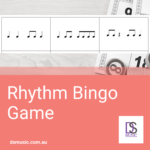
Beethoven & Bingo
Check out a few DSMusic free resources and a discover a round-up of our favourite finds this month.
-
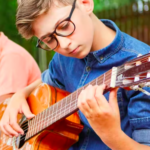
Practice, Performance Anxiety & Lifting Literacy
Plus dynamics, quaver rests, quotes and more – check out a few DSMusic free resources and a discover a round-up of our favourite finds this month.
-
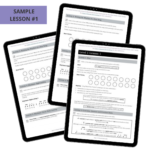
Melody, Models & a bit of Bill Bailey
Tackle tonality with Bill Bailey, check out a few DSMusic free resources and a discover a round-up of our favourite finds this month.
-
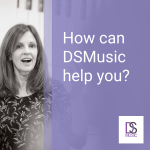
DSMusic – Remote Learning for All!
Are you looking for material that is ready-made for remote-learning? Do you need some stuff to stash away to leave as extras or send off to students who are home sick from school? Perhaps what you’re after is some go-to revision, extension or support material for students across their learning pathway? For all of you […]
-
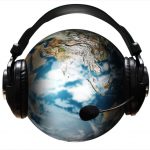
Universal Music Education
Universal Music Education Welcome to 2020 and our first post for the year. This article has been kindly shared by Walter Bitner: a multi-instrumentalist, singer, conductor, and teacher, and serves as Director of Education & Community Engagement for the Richmond Symphony in Richmond, Virginia, USA. He writes about music and education on his website Off The Podium at walterbitner.com, and his […]

